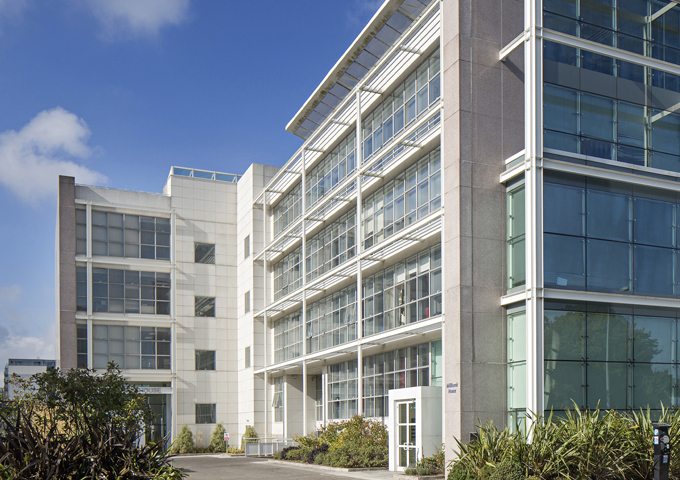February 2024
February 2024
The Irish commercial property market is undergoing a cyclical downturn with a decline in value of 12.7% over 20231. The office sector was the hardest hit with the central Dublin office market down over 16% in capital value.
However, this downturn is not confined to the Irish market with CBRE reporting difficult investment markets around Europe. The level of investment in the Irish market in 2023 was c.€2bn, less than 50% of the average turnover for the last 10 years.
The retail sector attracted 24% of investment spend in 2023, well up on the average over many years and indicative of the attractive value available in this sector.

Office
The level of demand for office space in Dublin was c.50% below the 10-year average, with c.1.3mn sq. ft rented out during 2023, but it nevertheless illustrates that occupiers are continuing to rent space despite the hybrid working model. Most office workers have returned to in-person for at least a part of their week and employers are keen to facilitate this pattern.
The continued absence of the technology sector from the market has depressed demand, previously accounting for over half of occupancy rates over the past few years. Up to 2mn sq. ft of this space has now been placed back onto the market to sublet, which coupled with the volume of new accommodation under construction, is leading to a vacancy rate of 16%, the highest since 2013.
Demand is shifting to buildings with high sustainability credentials, which will underpin the value of such stock particularly in suburban locations where rent is typically around 50% of the amount payable in the City.
Retail
Consumer confidence has fallen since hitting a 15-month high in late Q2 2023 and the Central Statistics Office report that retail sales in the 12 months to November 2023 were up 0.8% in volume terms and 3.9% in value.
Rent levels were broadly stable in 2023, with some growth expected during 2024 in prime shopping centres and high street locations where vacancies are lower due to retailers expanding as trade increases.

Industrial
The sector has seen sustained momentum buoyed by low availability and above average demand, fuelling pre-letting activity and supporting rental growth. The volume of space taken up during 2023 was over 3.2mn sq. ft, largely in line with the long-term average.
Prime industrial rents in Dublin are now around €12 per sq. ft and with the vacancy rate in the main industrial/logistics locations less than 2%, rents are expected to rise further. The uplift in rental values is also reflective of rising building cost inflation as well as the cost of delivering on the sustainability credentials demanded by many international occupiers.

Market outlook
The rise in interest rates has come to an end and markets are anticipating reductions in rates during 2024. It is reasonable to conclude that once the macro economic environment becomes more settled investors will be drawn to the relative value which well-let commercial property offers.
The level of activity in the investment market will almost certainly increase in 2024 as values approach an equilibrium between buyers and sellers. Transactions are likely to go ahead with two of the major shopping centres in Blanchardstown and The Square, as well as several properties due to come to market in Grafton Street.
There has also been a sharp drop in construction activity in the office sector leading to new supply dropping to almost zero once the current crop of projects reaches completion.
Investors will also be focused on the outlook for supply and demand from occupiers for the various classes of commercial property. Despite the difficult international environment, the latest ESRI Quarterly Economic Commentary characterises the Irish domestic real economy as maintaining robust growth with full employment, healthy government finances and elevated levels of household savings, all factors which support demand for property in the future.
1. MSCI Capital Value Index
Any views and opinions are those of the Fund Managers, this is not a personal recommendation and does not take into account whether any financial instrument referenced is suitable for any particular investor.
Capital at risk. If you invest in any Gresham House funds, you may lose some or all of the money you invest. The value of your investment may go down as well as up. This investment may be affected by changes in currency exchange rates. Past performance is not necessarily a guide to future performance.
The above disclaimer and limitations of liability are applicable to the fullest extent permitted by law, whether in Contract, Statute, Tort (including without limitation, negligence) or otherwise.
 Gresham House
Specialist asset management
Gresham House
Specialist asset management




